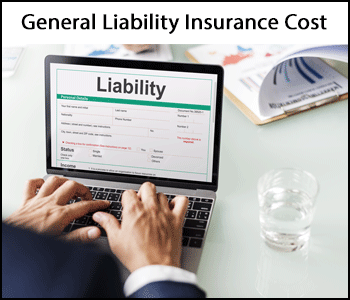General liability insurance is a vital part of protecting your business against unforeseen risks. However, as your business grows, you may find that your initial coverage isn’t enough to shield you from new challenges and potential liabilities. Expanding your general liability coverage can provide additional protection and peace of mind. In this article, we’ll discuss how to effectively expand your general liability coverage to better safeguard your business.
1. Assess Your Current Coverage
a. Review Existing Policy Limits
Start by reviewing your current general liability insurance policy. Check the policy limits to see if they align with your business operations and risk exposure. Are your per occurrence and aggregate limits sufficient to cover potential claims? If you’re uncertain, consider consulting with an insurance professional for a detailed analysis.
b. Identify Gaps in Coverage
Evaluate any gaps in your current coverage. Are there specific risks your business faces that your existing policy doesn’t address? For instance, if your business has recently expanded into new services or products, ensure that your current policy covers those areas. Conducting a thorough risk assessment can help pinpoint these gaps.
2. Consider Additional Coverage Options
a. Umbrella Insurance
Umbrella insurance provides additional liability coverage above and beyond your existing general liability policy limits. This type of insurance is ideal for businesses at a higher risk of facing significant claims. For instance, if you have a $1 million general liability policy and a claim costs $1.5 million, umbrella insurance can cover the additional $500,000, ensuring you’re not left financially exposed.
b. Professional Liability Insurance
If your business provides professional services, consider adding professional liability insurance (also known as errors and omissions insurance). This coverage protects against claims of negligence, errors, or omissions in the services you provide. For example, if a client alleges that your advice led to their financial loss, professional liability insurance can help cover legal fees and settlements.
c. Products Liability Insurance
If your business manufactures or sells products, products liability insurance is essential. This coverage protects against claims related to injuries or damages caused by a product your business sold or produced. For instance, if a customer is harmed by a defective product, this insurance can help cover legal costs and settlements.

3. Increase Your Coverage Limits
If your business has grown or evolved, it might be time to increase your general liability coverage limits. Higher limits can provide greater protection against potential claims. Discuss your options with your insurance provider to determine appropriate limits based on your current operations and risk exposure.
4. Tailor Your Policy to Fit Your Business Needs
a. Customize Your Coverage
Many insurance providers offer customizable general liability policies that allow you to tailor coverage to fit your specific business needs. Consider adding endorsements or riders that address your unique risks. For example, if you operate in a high-risk industry, such as construction or hospitality, you might want to include coverage for specific risks related to your business.
b. Evaluate Contractual Obligations
If your business engages in contracts that require specific insurance coverage, make sure your general liability policy meets those requirements. Review contracts with clients or partners to identify necessary coverage and adjust your policy accordingly.
5. Regularly Review and Update Your Policy
As your business continues to grow and change, so will your insurance needs. Regularly reviewing your general liability policy ensures that your coverage remains adequate and relevant. Set a schedule to evaluate your policy at least annually or whenever you experience significant changes in your business operations.
a. Conduct Risk Assessments
Perform periodic risk assessments to identify new exposures or changes in existing risks. This proactive approach allows you to adjust your coverage in response to evolving business conditions.
b. Communicate with Your Insurance Provider
Keep an open line of communication with your insurance provider. They can offer guidance on adjusting your coverage based on changes in your business or industry. Regular discussions can help you stay informed about new coverage options or changes in regulations that may impact your policy.

6. Educate Your Team
a. Train Employees on Risk Management
Educating your employees about risk management practices can help minimize potential liabilities. Conduct training sessions to raise awareness of safe practices and procedures that can reduce the likelihood of claims. For example, if you run a retail business, train employees on customer safety protocols to minimize the risk of accidents.
b. Foster a Culture of Safety
Encouraging a culture of safety within your organization not only protects your employees but also reduces the likelihood of claims. Implement safety measures and create a supportive environment that prioritizes risk management. This proactive approach can positively impact your insurance costs and coverage needs.
Conclusion
Expanding your general liability coverage is an essential step in safeguarding your business from unexpected risks. By assessing your current coverage, considering additional options, and regularly reviewing your policy, you can ensure that your business is well-protected as it grows. Additionally, fostering a culture of safety and educating your team can further minimize potential liabilities. Taking these proactive steps will not only enhance your coverage but also provide peace of mind as you focus on running your business.
FAQs
- What is general liability insurance?
General liability insurance protects businesses against claims of bodily injury, property damage, and personal injury. - Why should I consider expanding my general liability coverage?
Expanding your coverage ensures adequate protection against potential claims, especially as your business grows and evolves. - What is umbrella insurance?
Umbrella insurance provides additional liability coverage above and beyond your existing general liability policy limits. - What is professional liability insurance?
Professional liability insurance protects against claims of negligence or errors in the services you provide. - How often should I review my general liability policy?
It’s recommended to review your policy at least annually or whenever significant changes occur in your business operations. - What factors should I consider when increasing my coverage limits?
Consider the nature of your operations, potential risks, and any contractual obligations when deciding to increase your coverage limits. - How can employee training impact my general liability coverage?
Educating employees on risk management practices can reduce the likelihood of claims, potentially lowering your insurance costs and coverage needs.

